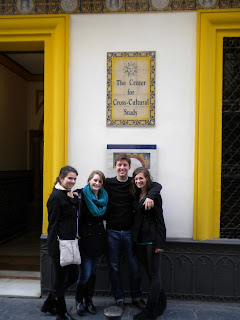Many students are starting to firm up their summer plans. Jena Viviano, a junior at Lehigh University, won a scholarship to study abroad in a country of her choice – what an exciting summer she has ahead of her!
Christine: What are your summer study abroad plans?
Jena: I plan to go to London or Italy. In London I would be interning in financial services with a company such as City Bank. If I were blessed to find something in Italy, I would go to Milan and intern in the fashion industry, behind the scenes of the industry.
Christine: Can you tell me a little bit about how you are doing this?
Jena: Sure. I was one of three juniors in the College of Business and Economics to win the Tauck Scholarship. It’s something you have to apply and interview for. It’s a rigorous process, but ultimately you get $10,000 to use to intern abroad in any business field.
Christine: How did you learn about this opportunity?
Jena: I got an e-mail inviting me to a luncheon to hear past participants speak about their experiences. The scholarship wasn’t on my radar before the e-mail.
Christine: So why do you want to go to London/Italy?
Jena: Well, London is known for its financial services industry. The work ethic and the companies are very similar to how it is in the U.S. A lot of the companies in New York are also in London. It would be much harder to work in a place where there was a language barrier. Then Italy is the Mecca of the fashion world. A lot of famous brands are in Milan, so my mentality is “Go big or go home.” Italy isn’t the best for financial services because of how different their laidback culture is, so I’m not sure it would be the best opportunity to learn about business as a whole.
Christine: What do you hope to learn or gain?
Jena: The whole experience will allow me to be more independent since I am going alone. I hope to gain a different way to look at business, a more global view. Every company needs to be global to be successful and having abroad experience will give me a competitive advantage in the job market. I want to learn about the culture and business specifically how they sustain economic stability and how they live day to day.

